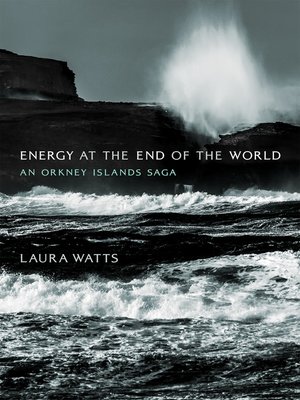
Sign up to save your library
With an OverDrive account, you can save your favorite libraries for at-a-glance information about availability. Find out more about OverDrive accounts.
Find this title in Libby, the library reading app by OverDrive.



Search for a digital library with this title
Title found at these libraries:
| Library Name | Distance |
|---|---|
| Loading... |
The islands of Orkney, off the northern coast of Scotland, are closer to the Arctic Circle than to London. Surrounded by fierce seas and shrouded by clouds and mist, the islands seem to mark the edge of the known world. And yet they are a center for energy technology innovation, from marine energy to hydrogen fuel networks, attracting the interest of venture capitalists and local communities. In this book, Laura Watts tells a story of making energy futures at the edge of the world.
Orkney, Watts tells us, has been making technology for six thousand years, from arrowheads and stone circles to wave and tide energy prototypes. Artifacts and traces of all the ages—Stone, Bronze, Iron, Viking, Silicon—are visible everywhere. The islanders turned to energy innovation when forced to contend with an energy infrastructure they had outgrown. Today, Orkney is home to the European Marine Energy Centre, established in 2003. There are about forty open-sea marine energy test facilities in the world, many of which draw on Orkney expertise. The islands generate more renewable energy than they use, are growing hydrogen fuel and electric car networks, and have hundreds of locally owned micro wind turbines and a decade-old smart grid. Mixing storytelling and ethnography, empiricism and lyricism, Watts tells an Orkney energy saga—an account of how the islands are creating their own low-carbon future in the face of the seemingly impossible. The Orkney Islands, Watts shows, are playing a long game, making energy futures for another six thousand years.







